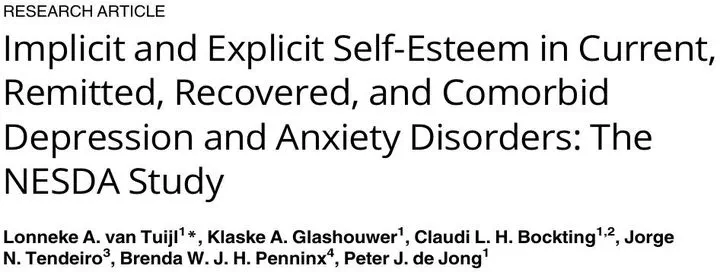Implicit and explicit self-esteem in current, remitted, recovered, and comorbid depression and anxiety disorders: The NESDA study
15 Nov , 2016·
,
,
,
,
,
Lonneke A. Van Tuijl
Klaske A. Glashouwer
Claudi L. H. Bockting
Jorge N. Tendeiro
Brenda W. J. H. Penninx
Peter J. De Jong

Abstract
Dual processing models of psychopathology emphasize the relevance of differentiating between deliberative self-evaluative processes (explicit self-esteem; ESE) and automatically-elicited affective self-associations (implicit self-esteem; ISE). It has been proposed that both low ESE and ISE would be involved in major depressive disorder (MDD) and anxiety disorders (AD). Further, it has been hypothesized that MDD and AD may result in a low ISE “scar” that may contribute to recurrence after remission. However, the available evidence provides no straightforward support for the relevance of low ISE in MDD/AD, and studies testing the relevance of discrepant SE even showed that especially high ISE combined with low ESE is predictive of the development of internalizing symptoms. However, these earlier findings have been limited by small sample sizes, poorly defined groups in terms of comorbidity and phase of the disorders, and by using inadequate indices of discrepant SE. Therefore, this study tested further the proposed role of ISE and discrepant SE in a large-scale study allowing for stricter differentiation between groups and phase of disorder.
Type
Publication
PLoS ONE, 11